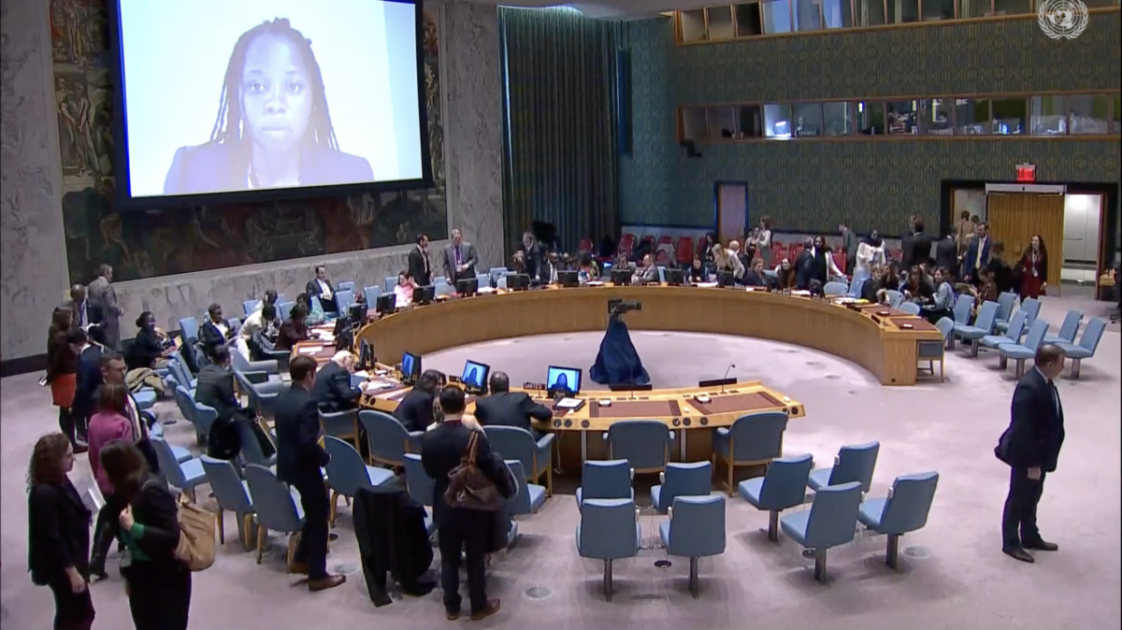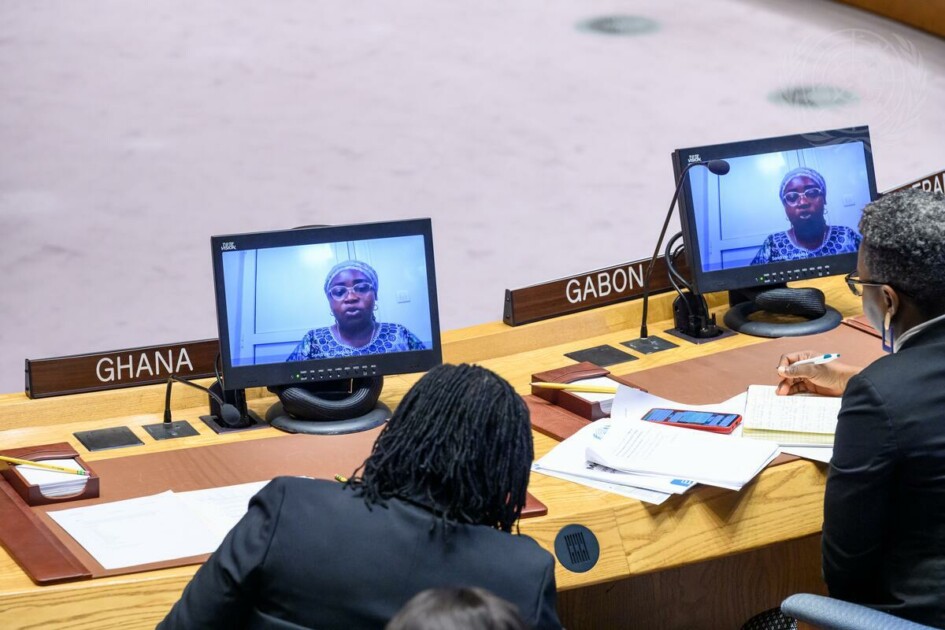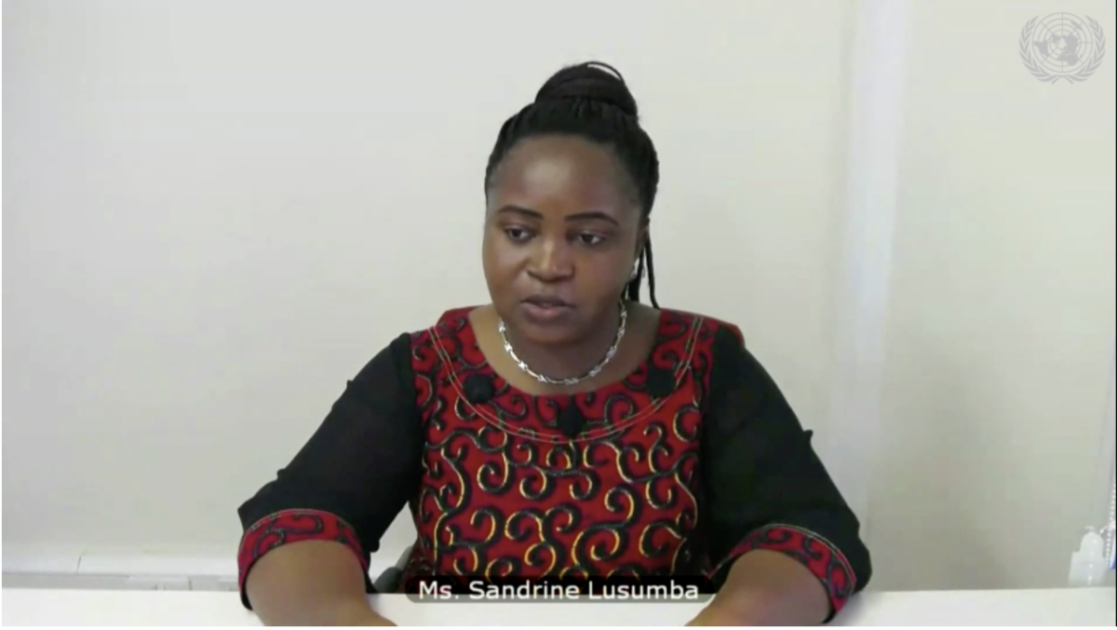Democratic Republic of the Congo
Women in the Democratic Republic of Congo continue to face widespread sexual violence, disease, and displacement in conflict situations arising from clashes between dozens of armed groups. Often, sexual violence and rape are used as terror tactics and weapons of war, and despite the ratification of the Convention on the Elimination of All Forms of Discrimination against Women (CEDAW) and the Women’s Platform for the Peace, Security and Cooperation Framework, women are still largely underrepresented in peacebuilding efforts. Additionally, women activists face rape as a form of torture by government actors who disagree with their political activity. The United Nations Organization Stabilization Mission in the DRC (MONUSCO) aims to provide protection for civilians, including reducing the threat of armed groups perpetrating sexual and gender-based violence, monitoring and reporting on sexual violence and ensuring women’s participation in stabilization and national political dialogue.
Democratic Republic of the Congo
Women in the Democratic Republic of the Congo continue to face widespread sexual violence, disease, and displacement in conflict situations arising from clashes between dozens of armed groups. Often, sexual violence and rape are used as terror tactics and weapons of war, and despite the ratification of the Convention on the Elimination of All Forms of Discrimination against Women (CEDAW), and the Women’s Platform for the Peace, Security and Cooperation Framework, women are still largely underrepresented in peacebuilding efforts.
Additionally, women activists face rape as a form of torture by government actors who disagree with their political activity. The United Nations Organization Stabilization Mission in the DRC (MONUSCO) aims to provide protection for civilians, including reducing the threat of armed groups perpetrating sexual and gender-based violence, monitoring and reporting on sexual violence and ensuring women’s participation in stabilization and national political dialogue.
Current and Past Recommendations to the UN Security Council (Monthly Action Points)
In its expected renewal of the mandate of the UN Mission in the Democratic Republic of the Congo (DRC) (MONUSCO), the Security Council must maintain protection of civilians as a top priority, which includes supporting women’s full participation at all levels of decision-making regarding this protection. The Council must address the urgent and deepening instability in Eastern DRC, including the desertion of FARDC soldiers allegedly under the command of ICC-indicted Bosco Ntaganda, the formation of a new armed group, the surge in violence involving the FDLR, and the proliferation of arms and weapons. With current high levels of displacement, attention must be given to the particular vulnerability of women and girls. The persistent lack of accountability for crimes in DRC, including mass rape in Walikale in 2010 and in the area around Fizi in 2011, further exacerbates the security concerns in these communities. Compounding these concerns is a lack of national cohesion. In discussions regarding MONUSCO’s mandate, the Council should:
- Urgently address the insecurity in Eastern DRC, including protection of women and girls who have been displaced;
- Ensure it focuses on and supports reconstruction of state authority through national cohesion programs;
- Highlight the regional dimensions of the conflict in eastern DRC;
- Support all national efforts and obligations regarding women’s rights, including full respect for constitutional clauses ensuring gender equality, and full implementation of the National Action Plan on 1325, including resourcing of the plan;
- Take concrete steps to end illegal weapons flows in the country, and the illegal exploitation of minerals;
- Prioritize comprehensive security sector reform, including a vetting mechanism to remove senior officers with a record of serious violations of international humanitarian and human rights law and bring them to justice;
- Support the fight against impunity, including by holding the DRC government to account for the lack of prosecution of suspected perpetrators of sexual violence, and for inadequate witness protection and service provision for survivors;
- Demand the arrest of all perpetrators for these crimes, including Bosco Ntaganda and Ntabo Ntaberi Sheka, and provide the DRC government with the support necessary to enact these arrests; and
- Ensure MONUSCO’s prioritization of protection of civilians (as in previous mandate SCR 1991), and ensure this mandate is fully resourced and implemented.
In its expected renewal of the mandate of the UN Mission in the Democratic Republic of the Congo (DRC) (MONUSCO), the Security Council must maintain protection of civilians as a top priority, which includes supporting women’s full participation at all levels of decision-making regarding this protection. The Council must address the urgent and deepening instability in Eastern DRC, including the desertion of FARDC soldiers allegedly under the command of ICC-indicted Bosco Ntaganda, the formation of a new armed group, the surge in violence involving the FDLR, and the proliferation of arms and weapons. With current high levels of displacement, attention must be given to the particular vulnerability of women and girls. The persistent lack of accountability for crimes in DRC, including mass rape in Walikale in 2010 and in the area around Fizi in 2011, further exacerbates the security concerns in these communities. Compounding these concerns is a lack of national cohesion. In discussions regarding MONUSCO’s mandate, the Council should:
- Urgently address the insecurity in Eastern DRC, including protection of women and girls who have been displaced;
- Ensure it focuses on and supports reconstruction of state authority through national cohesion programs;
- Highlight the regional dimensions of the conflict in eastern DRC;
- Support all national efforts and obligations regarding women’s rights, including full respect for constitutional clauses ensuring gender equality, and full implementation of the National Action Plan on 1325, including resourcing of the plan;
- Take concrete steps to end illegal weapons flows in the country, and the illegal exploitation of minerals;
- Prioritize comprehensive security sector reform, including a vetting mechanism to remove senior officers with a record of serious violations of international humanitarian and human rights law and bring them to justice;
- Support the fight against impunity, including by holding the DRC government to account for the lack of prosecution of suspected perpetrators of sexual violence, and for inadequate witness protection and service provision for survivors;
- Demand the arrest of all perpetrators for these crimes, including Bosco Ntaganda and Ntabo Ntaberi Sheka, and provide the DRC government with the support necessary to enact these arrests; and
- Ensure MONUSCO’s prioritization of protection of civilians (as in previous mandate SCR 1991), and ensure this mandate is fully resourced and implemented.
Relevant Resources









